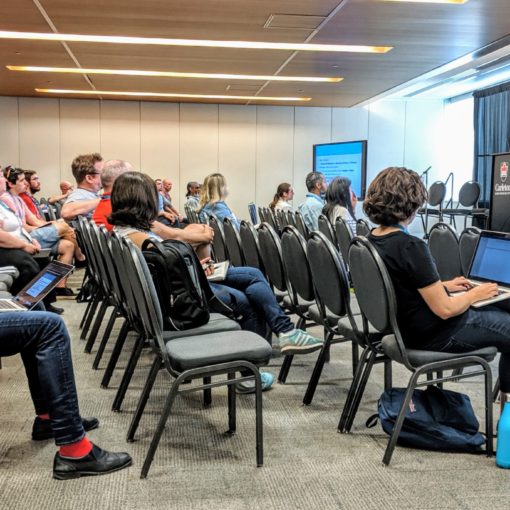For many people going to university or college usually means this is there first time living away from home. Not everyone moves away from home for their first year of university of college but if you are, then there are some things to consider. The first thing to consider is, where to live? Are you going to live in residence or off campus?
Residence pros and cons
Let’s say you choose to live in residence. What are the pros and cons of living on campus?
Pros
- You’re close to your classes, school.
- You probably have a meal plan so no preparing meals.
- Your commute to school is short.
- You’re around many other students so there is a built-in community of people in a similar situation as you all around you.
- Your residence fee pays for everything, utilities, basic furnishings etc.
Cons
- You are so close to school, all the time.
- You can end up being on campus all the time which can become very isolating and you end up out of touch with reality.
- There may be a wait list to get into residence.
- You may have a roommate and you may end up not getting along. Now you’re stuck with someone you don’t really like.
- If you like cooking, you’re stuck eating what is there. I have heard of some residences that are almost like apartments with cooking facilities, but I’m not sure how readily available they are and if all schools have them.
- It may be more expensive that you want to pay for accommodation or can pay.
Off campus pros and cons
Let’s say you end up living off campus. What are the pros and cons of living off campus?
Pros
- You have a lot more freedom in terms of how you can live your life.
- You can choose your location.
- You can choose the type of accommodation you want to live in.
- Depending on the type of accommodation you choose, you’ll probably have more freedom as to how you decorate it. You’ll be able to do more to “make it your own”, than you can probably do in residence.
- You’ll get a chance to see more of the city because now you’ll be travelling back and forth to school.
- You’ll be more apart of the community of that town rather than just a community member of the university.
- Definitely more room to “spread your wings” than in residence or at home.
- You’ll have more opportunity to interact with people outside of students and professors.
- You can make your own meals or at least eat what you want.
Cons
- More responsibility.
- You’ll be responsible for your own meals.
- You’ll have to budget more and get your rent in on time, each month!
- You’ll have neighbours or room/house mates that may not necessarily be students and so not necessarily empathetic to you schedule at time.
- You have another set or rules to live by if you’re living in shared accommodation.
Living at home pros and cons
Say you’re going to school in town and you decide to live at home. What are the pros and cons of that?
Pros
- Cheaper.
- Maybe your meals will be prepared for you.
- Maybe your laundry will be done for you or at least you’ll get some help with it.
- You’ll be around familiar people, personalities and surroundings. That may be both a pro and con but sometimes there is the comfort in the familiar regardless of whether it’s ideal or not.
- Family will keep it real so you won’t every lose touch of reality! This can be a con too!
Cons
- Lack of freedom. For some this may not even be an issue and for others it may be huge.
- FOMO – fear of missing out on that collegial experience.
- Commuting costs, both financial and time.
Off campus living accommodation types
Let’s say that you’ve decided to live off campus, what kind of accommodation are you looking for?
- Rooming house (This is usually just a house full of rooms for rent and the owner doesn’t live on the premises but probably checks in from time to time. The rules are dictated by the people in the house. The people renting the rooms usually don’t know each other before moving in. Each person renting a room has an individual lease with the landlord. Usually utilities are included to make it easer for the landlord and tenant.)
- Room in someone’s home (This is where there is a family or someone living in the house as if it’s their own, which it is! And they are offering a limited portion of the house for rent, usually a room and some shared facilities. You live by their rules.)
- Apartment of your own
- Shared apartment with friends (Not quite a rooming house since you all know each other. Either all of your or one of you will take responsibility for the lease. Utilities are usually not included so not a responsibility you and your friends will have to take on.)
- Shared house with friends (Same as 4.)
- Airbnb
- Other (YMCA, hotel, homestay, hostel)
Questions to ask yourself before choosing off campus accommodation type
Regardless of what type of accommodation you’re going to be living in off campus, there are some questions you may want to consider asking yourself or your potential landlord.
- Where do you want to be located in relation to school?
- Do you want to be able to walk to school?
- Do mind taking public transportation to school? How long are you willing to be on public transportation to get to school?
- Do you want to be near amenities? E.g. grocery stores, banks, public transportation
- Do you need parking? If so, how much is parking?
- What is your budget?
- What is included in the rental price?
- Are utilities included?
- Is Wifi included?
- Laundry privileges?
- Kitchen privileges?
Things to consider when living with others
If you’re considering living with others, so accommodation types 1, 2, 4 or 5, some other questions come to mind:
- Who else will be living in the house?
- Is it an all female house?
- Are they all male?
- Is there a mix of male and female occupants in the house?
- Are pets allowed?
- Are there common areas?
- If it’s a family home, who are the members of the family? E.g. children, elderly persons, pets etc.
- Are kitchen privileges given? Is laundry on-site?
- How long is the lease? Some students are only studying from Sept – April and many places rent for 12 months, rather than 8. This is something to keep in mind.
- Are guests are allowed?
Things to consider when living with friends
Let’s say you’re moving in with a friend or two. So, you’re probably looking at sharing an apartment together or a house. You need to ask yourself a few questions!
- Can you live with these people 24/7?? This is a big questions. They may be your friends in class, on the weekends, when you travel but sharing space with someone all the time, is very different!
- What are your habits like? E.g. eating, cooking, cleaning, studying etc. If one is a neat freak and the other is of the clean once a week type, if that, there may be some friction down the road.
- What kind of home is going to be? The type where everyone’s friends drop by any time, all the time? Or a party house where, if there is a party that weekend, it’s at your place? Or will it be the place for peace and quiet and study?
Renting on your own
If you’re going to be renting an apartment on your own, you’re probably looking at a 12 months lease to start unless you’re subleasing from someone else. Let’s say you’re the original tenant and it’s a 12 month lease. In this case there are a few other things you may want to consider and ask.
- Can you sublet your place? You may end up getting a job somewhere out of the town from where you’re studying for the summer term and you don’t want to be paying for two places. Knowing if you can sublet your place would help because then you can rent it out to someone else for the summer.
- Are utilities included in the rent? If yes, what exactly? Some places may include some utilities and not others.
- Is there parking available to tenants? Even if you don’t have a car, it’s good to know. Why, you may ask? What if you have guests, or family comes to visit. It’s good to know where they can put their car safely.
- Is laundry in your unit or in the building or complex?
- Ask about the neighbours if you’re renting an apartment. Who they are? Are they working, families, students, retired etc. You don’t want to be in a building with a bunch of seniors that go to bed at 8pm and complain every time you walk around on your floor!
- Ask what kind of references they require?
- They will probably need a security deposit so ask about this and how much.
Residence or off campus housing
Our very first question was, are you going to live in residence or off campus? We never did look at the thought process for this question.
- If you’re going to school in town and are already living at home, then do you really want to live in residence? Some students do to get that experience and to also help themselves integrate into the university life. Others choose to move out on their own, maybe closer to the campus or with other friends from high school who are staying in town as well. And then there are others who choose to stay at home.
- If you’re going to school out of town, then you don’t have much of a choice. You can’t live at home. In this case, you need to figure out if residence or off campus housing is for you? If you’ve never lived on your own, residence may be a good place to start. There are less things to keep track of, like monthly payments, utilities, daily local transportation costs, food expenses etc. A lot of these costs are built into the residence fees or are taken care for the term by an additional fee. However, the spots in residence are limited, so not everyone who wants the convenience of residence life, is going to get it. So, more students than not will be living off campus. In some cases, it’s not a choice, it’s just the way it is.
In the above it’s kind of implied that the student is a student that is going to university for the first time either right after high school or after a gap year. So not too much work and life experience between finishing high school and starting post graduate studies. There are students who start university or go to university after working or while working with a family or other obligations and responsibilities in their life. Where do these people live? In many cases these people usually choose to continue with the education in the city that they are living in and will stay in their present accommodations. However, there are situations where they have to go out of town to continue with their studies. This is a completely different set of questions, a lists and pros and cons! That’s another post that we will get to soon enough!
Note: The lists above are no exhaustive by any means. There are probably many more points that can be added to each of the lists and should be added to reflect your individual situation.
Resources of where to live as a student in Ottawa:
If you’re a Carleton University student, check out their housing page.
If you’re a University of Ottawa student, check out there housing page.
Going to Algonquin College? Check out their housing page.
And St. Paul’s University students have options that can be found here.



